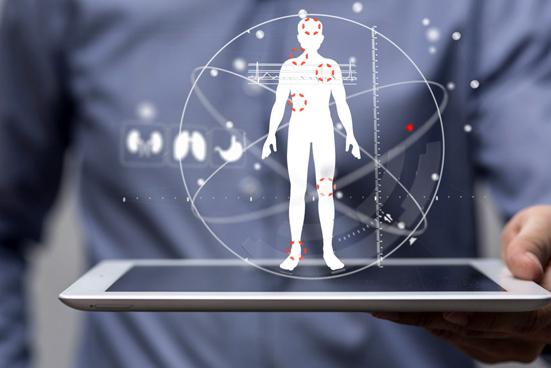Protxx uses machine learning in Alberta healthcare pilots
- January 29, 2020
- imc

Silicon Valley-based digital healthcare technology firm Protxx is collaborating with Alberta-based machine-learning organisations to test its precision medicine platform.
The organisations include Alberta Health Services (AHS), independent clinical healthcare providers, machine learning developers and three of the province’s universities.
Pilot testing of the Protxx precision medicine platform has been launched to quantify corresponding improvements in healthcare service quality, patient outcomes and provider economics.
The platform integrates wearable sensor and machine learning to replace bulky and expensive clinical equipment and time-consuming testing procedures for a variety of complex medical conditions. The sensors are designed to be worn unobtrusively by users of any age and in any clinical, athletic, industrial or military environment, expanding patient and provider access, enabling continuous and remote patient monitoring, and enhancing the value of telemedicine initiatives.
Multiple stakeholders within the Alberta healthcare ecosystem have identified applications in clinical diagnoses, treatment and rehabilitation of complex medical conditions in which multiple physiological systems are impaired, including injuries such as concussions, diseases such as Parkinson’s, and age-related disorders such as stroke. The ease of use and level of quantitative assessment enabled by the platform provide opportunities for better healthcare quality, outcomes and value for large and diverse groups.
Protxx CEO and founder John Ralston said: “Alberta’s unique combination of healthcare innovation initiatives, world-class research institutions and economic diversification strategy presents exciting opportunities for Protxx to expand the development and commercial deployment of our innovations in wearable devices and machine learning, and to prove out the economic value of more quantified management of medical conditions that affect global patient populations numbering in the billions.“
Protxx was recently incorporated in Alberta to support product development and pilot deployment initiatives with local customers and R&D partners, and to leverage the province’s expertise in healthcare service delivery and machine learning to expand the company’s employee base.
“I want to commend Protxx for choosing Alberta,” said Tanya Fir, Alberta minister of economic development. “Our province has a dynamic healthcare innovation ecosystem, and being recognised for our talent and expertise is a huge win that will spur future developments across multiple sectors of the economy. These pilots also support the strategic focus our province is taking for economic development through innovation, and I look forward to what’s in store for the future.”
Protxx was originally introduced into the Alberta healthcare ecosystem by Connection Silicon Valley and New West Networks, a Calgary and San Francisco based team supporting the efforts of Alberta’s economic development department to expand and diversify the province’s technology sector.
“AHS has been a great partner to work with on this investment opportunity,” said Christy Pierce, director at New West Networks. “Their innovation, impact and evidence team was instrumental in providing guidance on AHS’s priorities and potential opportunities with the appropriate strategic clinical networks and clinics. AHS has also worked with us and Innovate Calgary to introduce Protxx to collaborative research opportunities at the province’s universities, providing exciting research opportunities and exposure to the commercial innovation process for our faculty and students.”
Protxx has developed clinical grade wearable sensors that enable rapid non-invasive classification and quantification of neurological, sensory and musculoskeletal impairments due to fatigue, injury and disease. It has used the company’s large proprietary data sets to develop and train machine learning models that can automate analytical tasks such as classifying specific medical conditions based on unique patterns detected in the sensor data.
The firm’s customers and partners in Canada, USA, UK and Japan are helping healthcare payers rein in costs, providers improve quality of care, and consumers gain greater access to higher quality care and improved outcomes.





